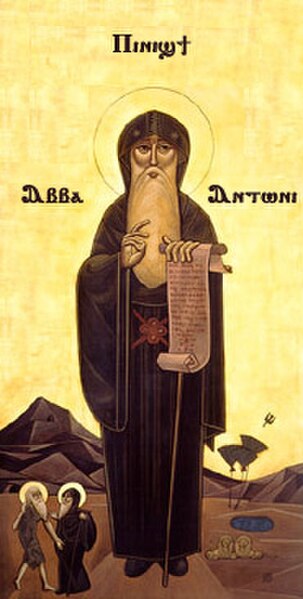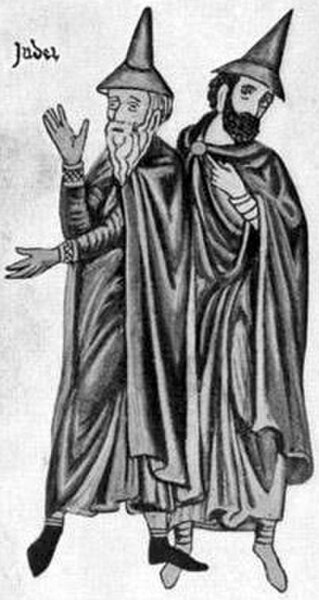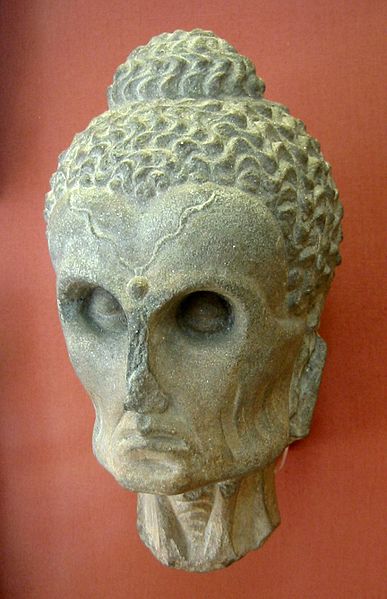Origen of Alexandria, also known as Origen Adamantius, was an early Christian scholar, ascetic, and theologian who was born and spent the first half of his career in Alexandria. He was a prolific writer who wrote roughly 2,000 treatises in multiple branches of theology, including textual criticism, biblical exegesis and hermeneutics, homiletics, and spirituality. He was one of the most influential and controversial figures in early Christian theology, apologetics, and asceticism. He has been described as "the greatest genius the early church ever produced".
Representation of Origen writing, from a manuscript of In numeros homilia XXVII, c. 1160
portrait by Guillaume Chaudière (1584)
While in Jericho, Origen bought an ancient manuscript of the Hebrew Bible which had been discovered "in a jar", a discovery which prefigures the later discovery of the Dead Sea Scrolls in the twentieth century. Shown here: a section of the Isaiah scroll from Qumran.
Dutch illustration by Jan Luyken (1700), showing Origen teaching his students
Asceticism is a lifestyle characterized by abstinence from sensual pleasures, often for the purpose of pursuing spiritual goals. Ascetics may withdraw from the world for their practices or continue to be part of their society, but typically adopt a frugal lifestyle, characterised by the renunciation of material possessions and physical pleasures, and also spend time fasting while concentrating on the practice of religion or reflection upon spiritual matters, which is thought by some to allow the practitioner's core of consciousness to expand and connect with the infinite universal consciousness. Some individuals have also attempted an ascetic lifestyle to free themselves from addictions to things such as alcohol, tobacco, drugs, entertainment, sex, food, etc.
Coptic icon of St. Anthony the Great, father of Christian monasticism and early anchorite. The Coptic inscription reads 'Ⲡⲓⲛⲓϣϯ Ⲁⲃⲃⲁ Ⲁⲛⲧⲱⲛⲓ' ("the Great Father Anthony").
A Sufi Muslim ascetic (fakir) in Bengal during the 1860s
Chassidei Ashkenaz were a Jewish mystical and ascetic movement in medieval Germany.
The Buddha as an ascetic. Gandhara, 2nd–3rd century CE. British Museum








